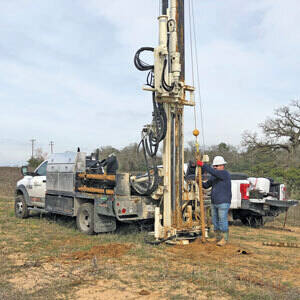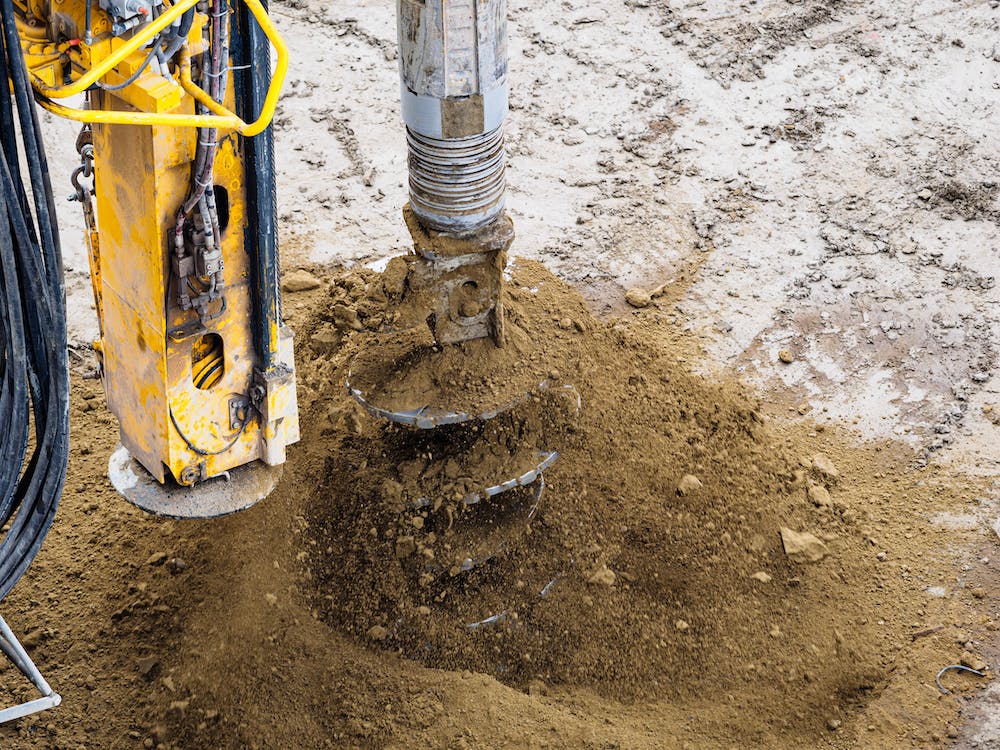Locating the most effective Geotechnical Companies in South Africa: Trick Considerations
Locating the most effective Geotechnical Companies in South Africa: Trick Considerations
Blog Article
The Significance of Geotechnical Design in Addressing Ecological Challenges and Enhancing Construction Safety
Geotechnical design serves as a keystone in the junction of ecological stewardship and construction safety and security, offering critical understandings right into the habits of dirt and rock under different problems. By executing critical site investigations and customized reduction steps, geotechnical designers play an important duty in securing both human lives and ecological stability.

Duty of Geotechnical Design
Geotechnical design plays an essential duty in the layout and building of infrastructure by dealing with the behavior of soil and rock products under different conditions. This field of design is necessary for recognizing the interaction between frameworks and the ground, which consists of figuring out the load-bearing ability of soil, evaluating security, and forecasting prospective negotiation or failing.
Geotechnical designers are accountable for conducting website investigations, which include sampling and screening dirt and rock to gather data on their chemical and physical homes. This information is important for designing structures, retaining wall surfaces, and other earth-retaining frameworks that make certain safety and long life. Geotechnical engineering educates the selection of proper building and construction methods and products, thereby reducing dangers associated with soil actions.
Furthermore, the combination of geotechnical design concepts into metropolitan planning and environmental administration is important for resolving obstacles such as ground contamination and groundwater administration. By recognizing geotechnical variables, engineers can create lasting remedies that enhance the resilience of framework against natural dangers, while additionally advertising environmental stewardship. Inevitably, the duty of geotechnical engineering is essential for accomplishing safe, durable, and ecologically conscious building and construction practices.
Dirt Erosion Mitigation
Soil erosion presents a considerable hazard to both ecological security and facilities stability, impacting roughly 24 billion bunches of fertile dirt shed each year worldwide. This phenomenon is intensified by elements such as deforestation, urbanization, and poor farming methods. Geotechnical engineering plays an essential role in creating efficient soil erosion reduction methods that protect both the environment and building and construction projects.
One method requires the implementation of disintegration control approaches such as plant life planting, which supports dirt through origin systems. Additionally, the building and construction of retaining terraces and wall surfaces can successfully lower surface drainage and protect susceptible areas from disintegration. Appropriate drain style is likewise critical; it decreases water accumulation and guides excess runoff far from important frameworks.
Furthermore, geotechnical engineers employ dirt stablizing strategies, such as the application of geotextiles and eco-friendly mats, to improve soil cohesion and prevent destruction - geotechnical companies in south africa. Regular monitoring and evaluation of erosion-prone websites make it possible for timely treatments, ensuring long-term sustainability. By incorporating these approaches, geotechnical design not just minimizes the effects of soil erosion but likewise adds to the strength of facilities against environmental challenges, ultimately cultivating a safer and more sustainable constructed setting
Groundwater Security Approaches
Groundwater functions as an essential resource for alcohol consumption water, agriculture, and industrial procedures, making its protection vital for ecological sustainability and public wellness. Efficient groundwater defense techniques are essential in mitigating contamination risks and making certain the long life of this resource.

Routine surveillance of groundwater high quality is additionally important, enabling very early discovery of contamination sources and facilitating prompt removal initiatives. Utilizing sophisticated technologies, such as geophysical studies and remote sensing, aids in determining prospective hazards to groundwater reserves.
Moreover, public education and stakeholder engagement are important, fostering area assistance for groundwater defense campaigns. geotechnical specialist. By combining governing measures, technical innovations, and neighborhood participation, we can develop a detailed structure that safeguards groundwater sources while advertising sustainable development and building techniques
Landslide Danger Administration
Landslides posture considerable threats to both human security and framework, making reliable risk management techniques necessary. Geotechnical design plays an essential duty in recognizing, evaluating, and mitigating landslide dangers. An extensive understanding of slope security, dirt technicians, and hydrology is important for developing effective risk management plans.
The primary step in landslide risk monitoring includes comprehensive website examinations, that include geological mapping and soil screening. These investigations assist designers examine the potential for landslides by identifying critical elements such as slope angles, soil make-up, and water web content. Using advanced technologies such as remote sensing and geophysical surveys can improve the precision of these analyses.
When risks are identified, ideal mitigation measures can be applied. These may consist of engineering options such as maintaining wall surfaces, drain systems, and incline stablizing techniques. Checking systems need to be established to spot indications of ground movement and modifications in water my sources degrees, enabling for positive interventions.

Enhancing Building And Construction Safety
Building and construction websites frequently offer a myriad of risks that can endanger worker security and task honesty. Geotechnical design plays a crucial role in improving building and construction security by offering vital insights into subsurface conditions. Via thorough soil and rock analysis, geotechnical engineers can identify prospective risks, such as soil instability, groundwater issues, and seismic vulnerabilities, which might compromise the safety and security of construction activities.
Executing geotechnical solutions, such as proper structure style and the use of keeping structures, minimizes these dangers considerably. These services not just guarantee the security of the frameworks being constructed yet likewise produce a much safer working environment for building workers.
Additionally, cultivating a society of security with read more training and adherence to developed security methods further boosts construction website safety and security. By integrating geotechnical knowledge into the planning and implementation phases, building jobs can accomplish higher safety and security requirements, eventually securing employees and making sure effective task conclusion.
Conclusion
To conclude, geotechnical engineering acts as an important self-control in dealing with ecological challenges and promoting construction safety. Through effective soil disintegration mitigation, groundwater protection techniques, and landslide danger administration, geotechnical designers add to the growth of resistant facilities. The combination of these practices promotes a more secure construction atmosphere and improves the sustainability of civil engineering jobs. Ultimately, the proficiency of geotechnical designers is indispensable in safeguarding both natural deposits and human lives versus prospective dangers.
Geotechnical engineering offers as a keystone in the intersection of environmental stewardship and construction security, supplying essential understandings right into the behavior of dirt and rock under various problems. Geotechnical engineering informs the choice of proper building techniques and materials, thereby reducing risks associated with dirt habits.
Geotechnical engineering plays a crucial role in creating efficient dirt disintegration reduction approaches that protect both the atmosphere and construction jobs.
Additionally, geotechnical engineers utilize dirt stablizing strategies, such as the application of geotextiles and biodegradable floor coverings, to improve soil communication and protect against deterioration. Via thorough dirt and rock evaluation, geotechnical engineers can recognize prospective threats, such as soil instability, groundwater issues, and seismic vulnerabilities, which may endanger the security of building activities.
Report this page